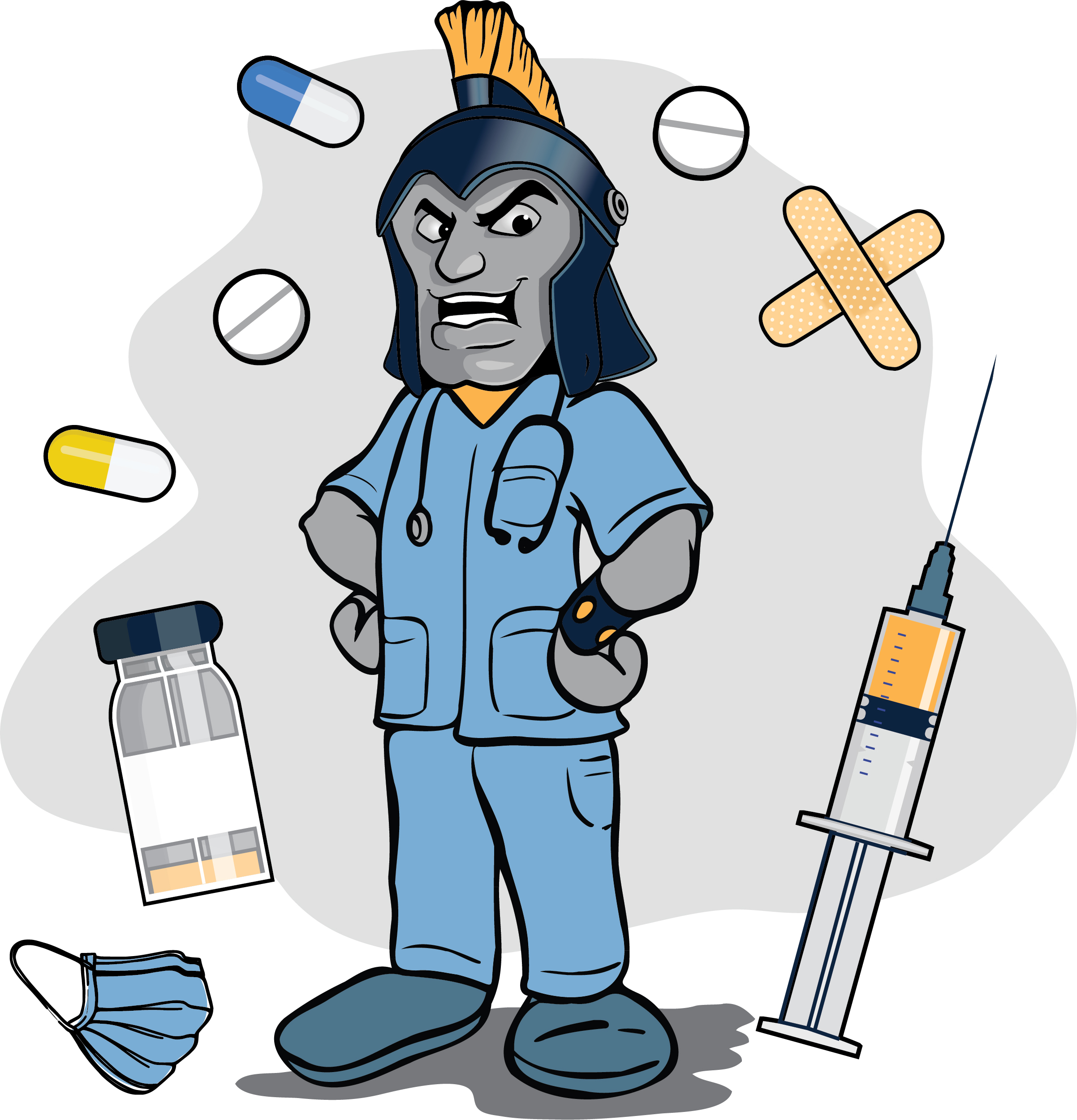
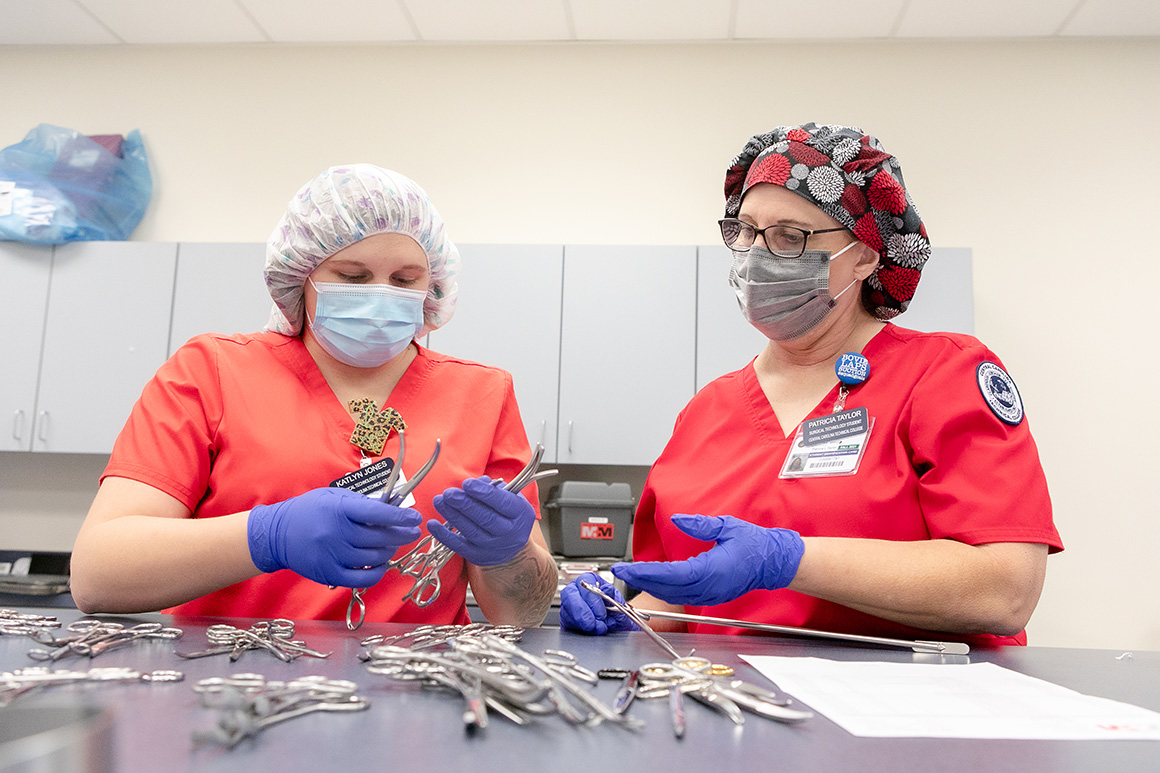
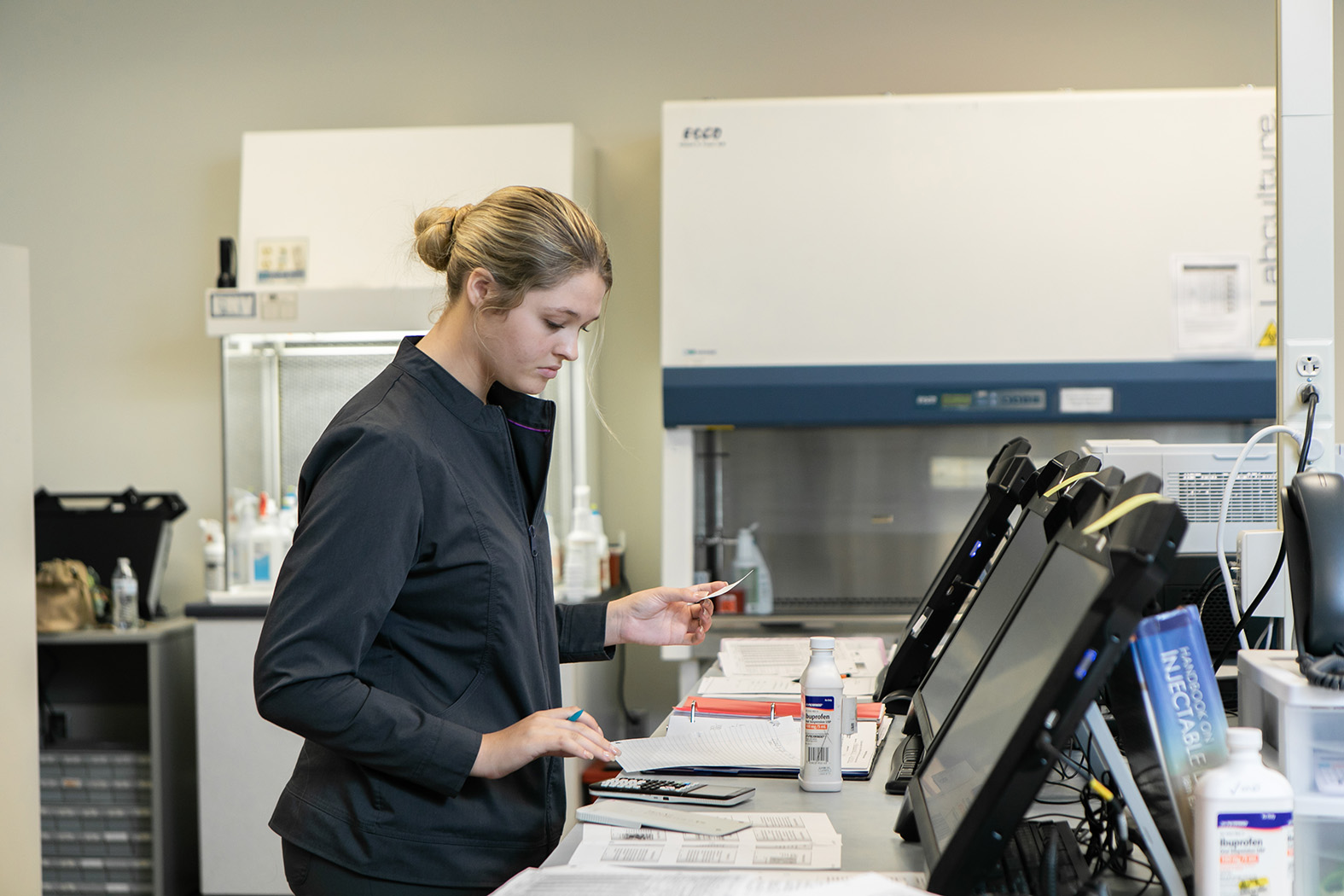
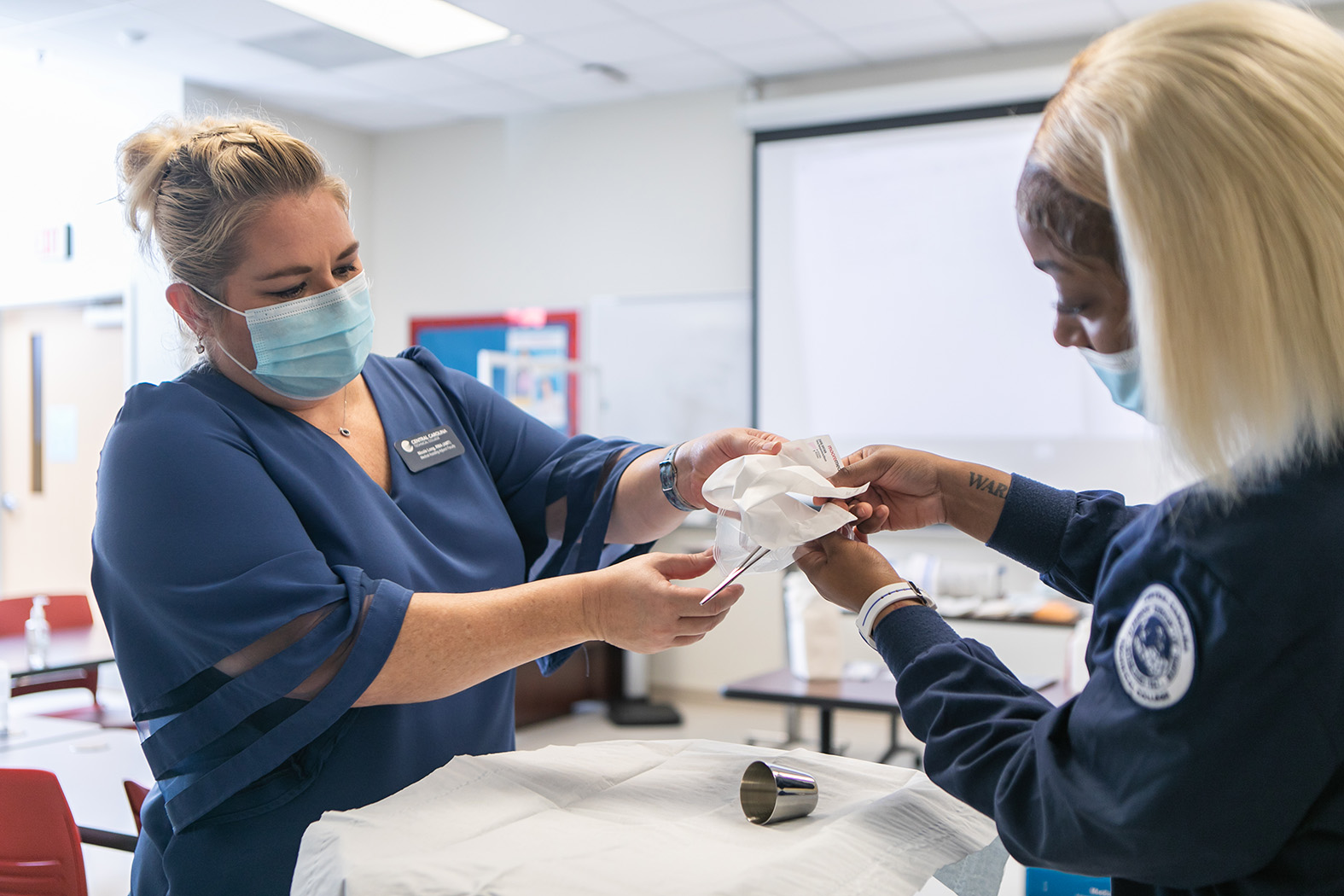
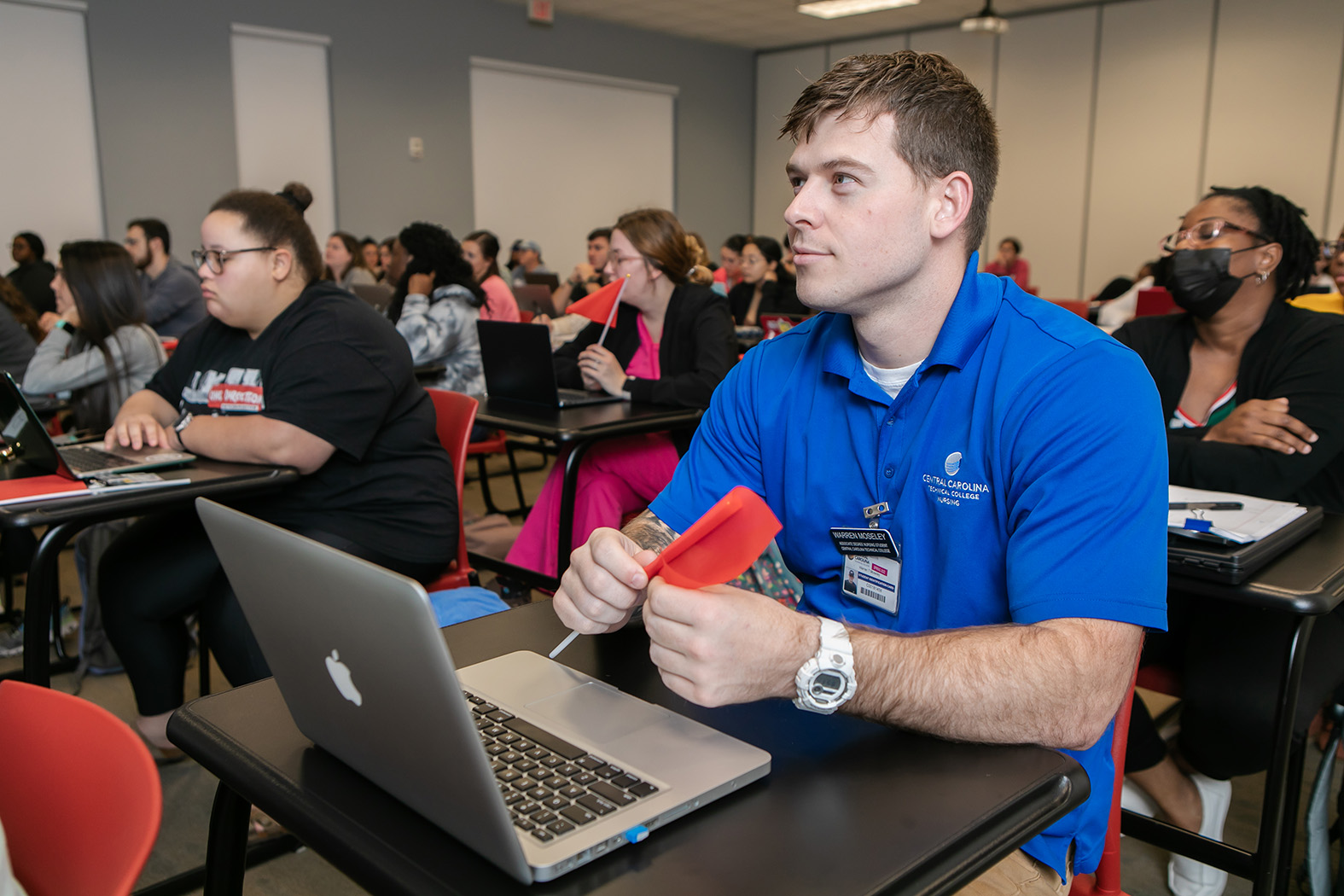
The Pre-Nursing Preparatory Certificate program provides a structured curriculum for students wishing to apply for admission to the Associate Degree in Applied Science Nursing program. Completion of the certificate prepares the student for application but does not guarantee acceptance into the program.
This program is aligned with the following career cluster: Health Science.
Program Contact:
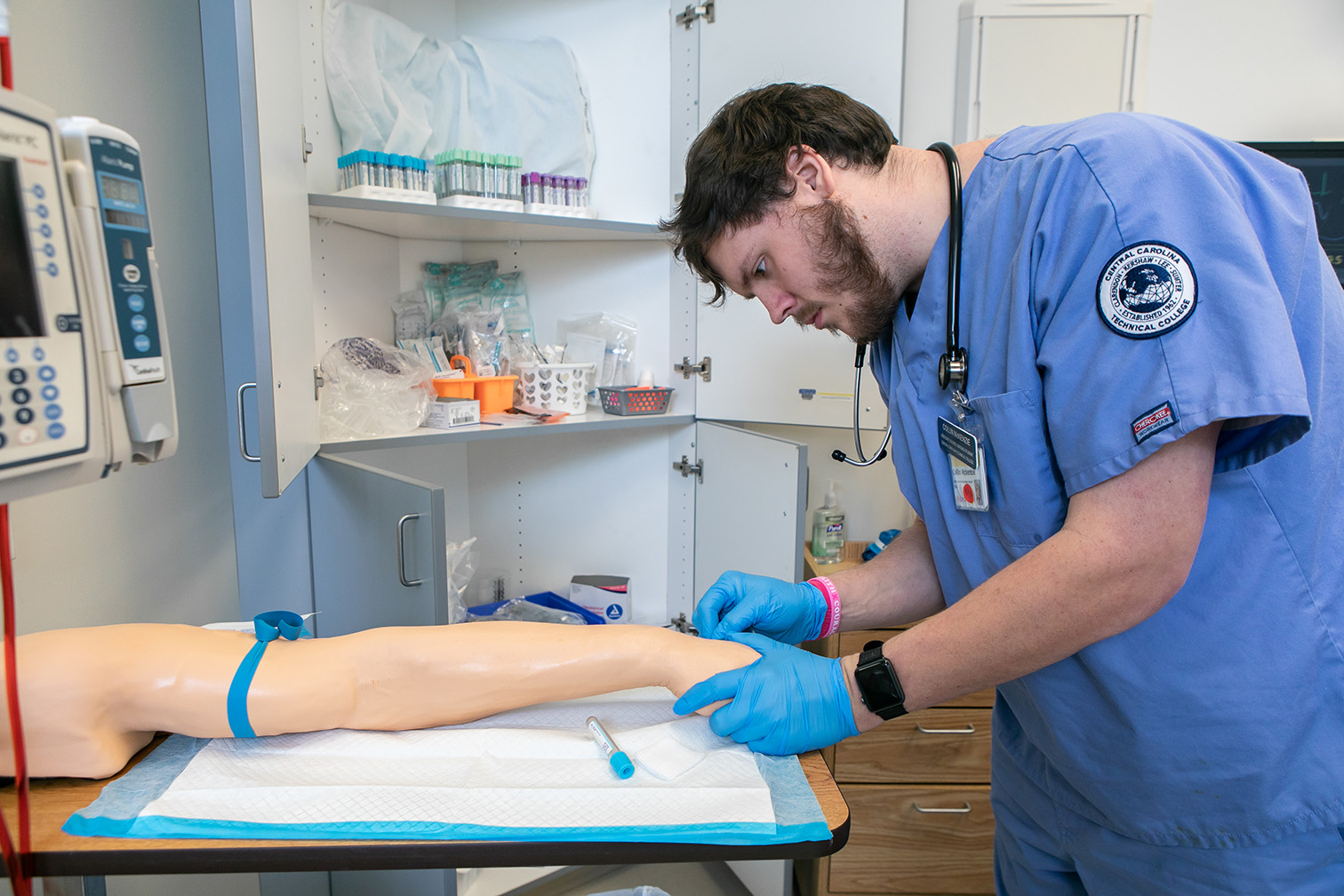
The Associate Degree Nursing (ADN) program prepares graduates to function as competent registered nurses who are caring and sensitive to diversity and use critical thinking and technology to provide care in structured settings for patients and their families/significant others. Throughout the program, the student has planned clinical experiences to complement classroom learning and to enhance skills in the application of nursing principles and associated technology. The scheduling of clinical experiences varies throughout the nursing program.
The Associate Degree Nursing program at Central Carolina Technical College at the Health Sciences Center located in Sumter, South Carolina is accredited by the: Accreditation Commission for Education in Nursing (ACEN) 3390 Peachtree Road NE, Suite 1400 Atlanta, GA 30326, Phone (404) 975-5000, www.acenursing.org. The most recent accreditation decision made by the ACEN Board of Commissioners for the Associate Degree Nursing program is Continuing Accreditation.
The Associate Degree Nursing Program is approved by the South Carolina Labor, Licensing, and Regulation Board of nursing, 110 Centerview Drive, Columbia, SC 29210, Phone (803) 896-4300, https://llr.sc.gov/nurse/.
Requirements for the program are subject to change without notice in order to meet requirements of the South Carolina LLR Board of Nursing, the South Carolina Technical College System, and ACEN.
Successful completion of the ADN program does not guarantee licensure to practice as a registered nurse.
Program Contact:
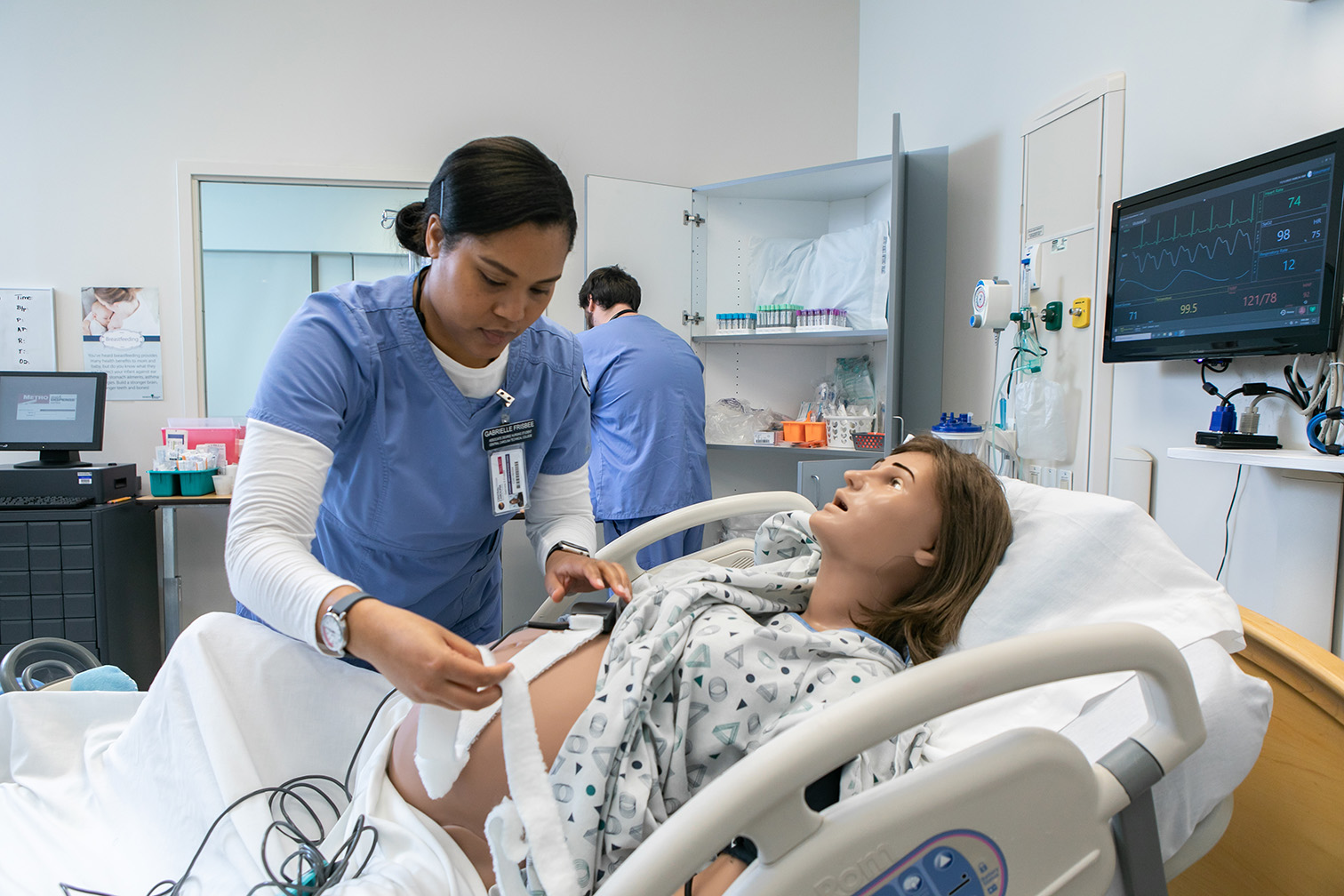
The Transition Nursing Option provides qualified licensed practical nurses (LPN) and qualified paramedics the opportunity for advanced placement into the Associate Degree Nursing (ADN) program. The ADN program prepares graduates to function as competent nurses who are caring and sensitive to diversity, use critical thinking and technology to provide care in structured settings for patients and their families/significant others. Throughout the program, the student has planned clinical experiences to complement classroom learning and to enhance skills in the application of nursing principles and associated technology. The scheduling of clinical experiences varies throughout the nursing program.
The Associate Degree Nursing program is accredited by the Accreditation Commission for Education in Nursing (ACEN), 3390 Peachtree Road NE, Suite 1400, Atlanta, Georgia 30326, (404)975-5000 www.acenursing.org. The most recent accreditation decision made by the ACEN Board of Commissioners for the Associate Degree Nursing program is Continuing Accreditation.
The ADN program prepares graduates to apply to take the National Council Licensing Examination for Registered Nurses (NCLEX-RN) and is approved by the South Carolina Department of Labor, Licensing, and Regulation (LLR) Board of Nursing, 110 Centerview Drive, Columbia, SC 29210, (803)896-4300, https://llr.sc.gov/nurse.
Requirements for the program are subject to change without notice in order to meet requirements of the South Carolina LLR Board of Nursing, the South Carolina Technical College System, and ACEN.
Successful completion of the ADN program does not guarantee licensure to practice as a registered nurse.
Program Contact:
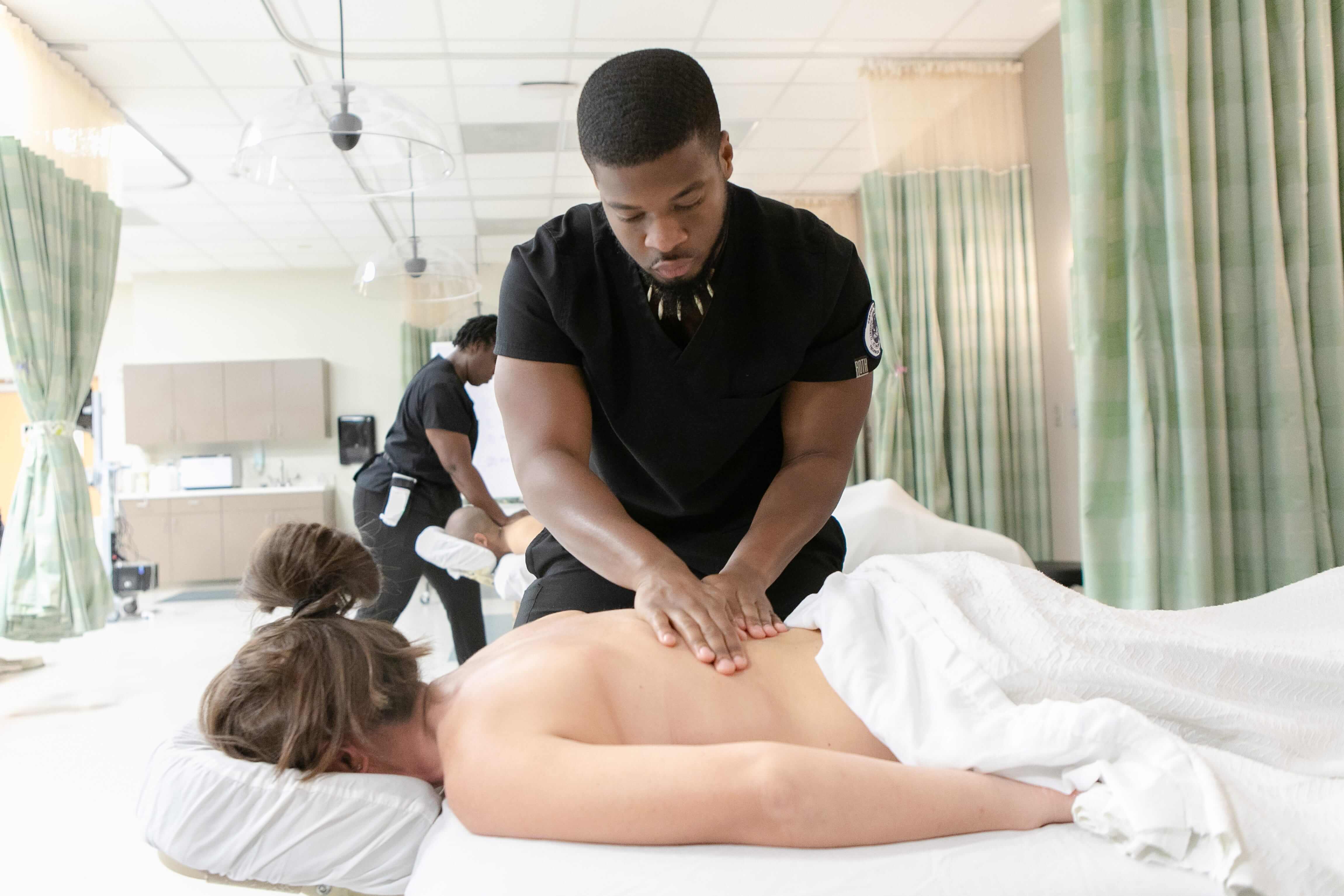
The Massage Therapy Program is an entry-level training program for students interested in becoming a massage therapist or for health care providers wishing to expand their range of clinical skills and knowledge. The Massage Therapy program prepares graduates to work in direct client care settings to provide manipulation (massage) of the soft tissue structures of the body to prevent and alleviate pain, discomfort, muscle spasm, and stress, and to promote health and wellness.
Employment opportunities may be found in health care facilities, rehabilitation centers, medical offices, nursing homes, spas, health and sports clubs, hotels/resorts, cruise ships, and private practice.
Upon successful completion of the Massage Therapy Certificate, students are eligible to apply to take the Federation of States Examination (MBLEx) before applying for a South Carolina license. Note: South Carolina licensure eligibility may be denied to applicants with criminal convictions. Graduates are eligible to apply to take the NCBTMB Specialty Certificate for Integrative Healthcare.
Program Contact:
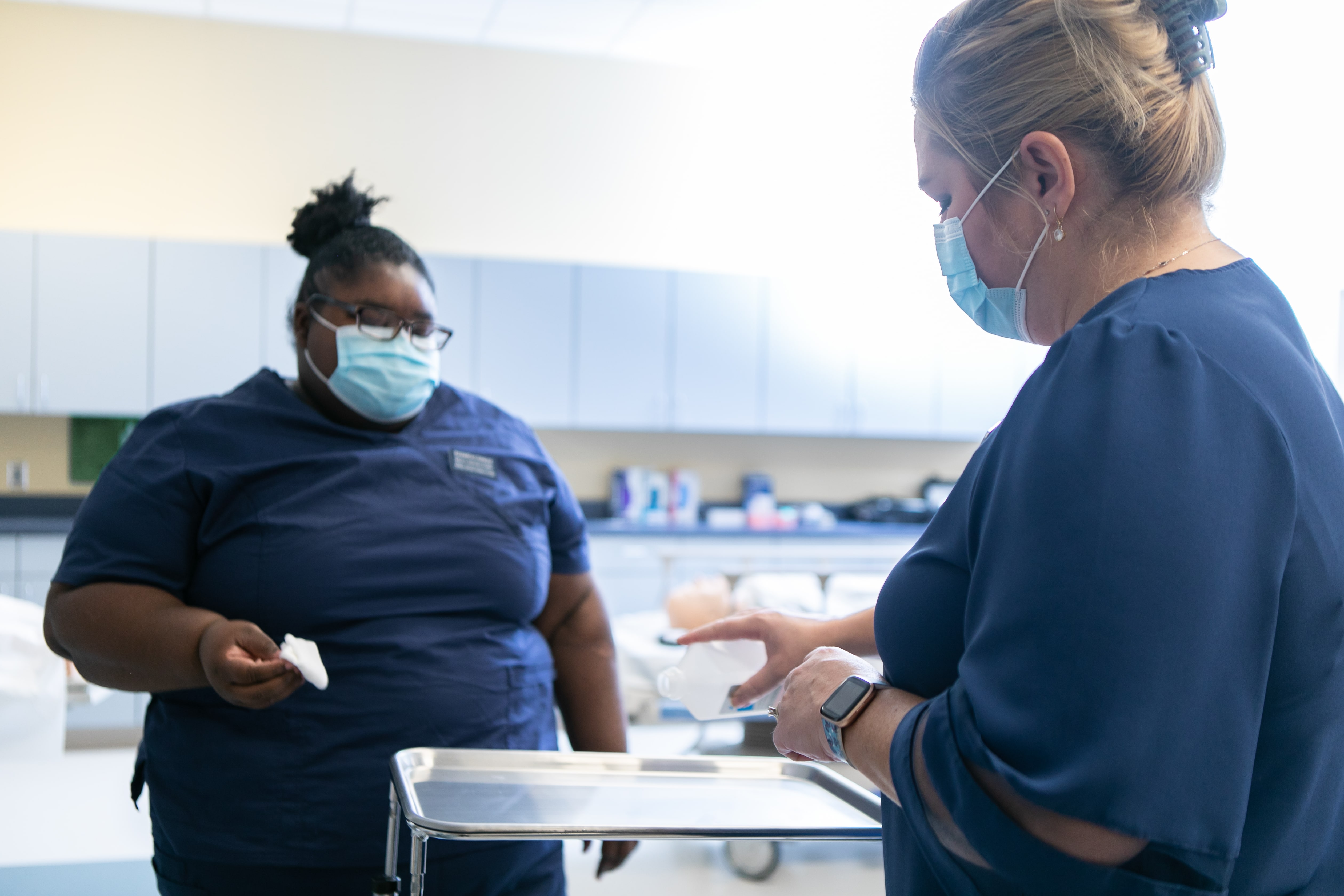
The Medical Assisting Diploma in Applied Science program prepares graduates to assist other health care professionals in offices and/or other medical settings and perform delegated administrative and clinical duties in accordance with respective federal and state laws governing such actions, activities, and ethical standards. The mission of Central Carolina Technical College’s Medical Assisting Program is to prepare medical assistants who are competent in the cognitive (knowledge), psychomotor (skills), and affective (behavior) learning domains to enter the profession.
Upon successful completion of the Medical Assisting program, the graduate is eligible to take the Certification exam as a RMA (Registered Medical Assistant-American Medical Technologists) and/or as a CMA (AAMA), (Certified Medical Assistant- American Association of Medical Assistants). Note: Certification examination eligibility may be denied to applicants with criminal convictions.
The Central Carolina Technical College Medical Assisting Diploma program is accredited by the Commission on Accreditation of Allied Health Education Programs (www.caahep.org) upon the recommendation of the Medical Assisting Education Review Board (MAERB), Commission on Accreditation of Allied Health Education Programs, 9355 – 113th St. N, #7709, Seminole, FL 33775
The Central Carolina Technical College Medical Assisting Diploma program has had the following outcomes:
- Job placement rate of 87.5% for the August 2020 graduates.
Program Goals
The Central Carolina Technical College Medical Assisting Diploma program employs the following core indicators as measures of the effectiveness of the program:
- The educational program will meet or exceed the standards of Central Carolina Technical College, SBTCE, SACSCOC, Commission on Accreditation of Allied Health Education Programs (CAAHEP) on recommendation of the Medical Assisting Education Review Board (MAERB).
- To prepare medical assistants who are competent in the cognitive (knowledge), psychomotor (skills) and affective (behavior) learning domains to enter the profession.
- 70 percent of those entering the program will graduate at the end of one and one half times the program length.
- 70 percent of graduates will be employed in the field or continue in an educational program within 6-9 months of graduation.
- 80 percent of graduates will rate the overall program as satisfactory.
- 80 percent of employers will rate the graduate of the program as satisfactory.
- 70 percent of graduates will pass the credentialing examination Certified Medical Assistant-CMA (AAMA) (American Association of Medical Assistants) and/or Registered Medical Assistant-RMA (American Medical Technologists) the first time taken.
- 50 percent of Medical Assisting graduates will participate in national credentialing examinations: Certified Medical Assistant-CMA (AAMA) (American Association of Medical Assistants) and/or Registered Medical Assistant-RMA (American Medical Technologists).
Program Student Learning Outcomes
At the completion of the Medical Assisting program, graduates will be able to:
- Practice safe examination room techniques and laboratory procedures commonly used in physician’s office and ambulatory facilities in compliance with regulatory agencies. (Success Measurement: Satisfactory Practicum Evaluation of Student-MED 156)
- Demonstrate the principles of pharmacology, drug therapy, and safe administration of medication. (Success Measurement: Successful Competency Assessments of Medication Administration-MED 114 and Satisfactory Practicum Evaluation of Student-MED 156)
- Communicate effectively and accurately, demonstrating respect for individual diversity while adapting for individual’s understanding. (Success Measurement: Successful Competency Assessments of Communication-MED 114, MED 115 & Satisfactory Practicum Evaluation of Student-MED 156)
- Provide effective and accurate education to patients regarding their prescribed plan of care. (Success Measurement: Successful Competency Assessments of Communication-MED 114, MED 115 & Satisfactory Practicum Evaluation of Student-MED 156)
- Perform medical office administrative duties, manage patient/electronic health records, complete medical forms, transmitting information utilizing medical office software/equipment. (Success Measurement: Successful Competency Assessments of Administrative Skills-MED 107 & Satisfactory Practicum Evaluation of Student-MED 156)
- Employ the principles and practices of basic financial procedures, billing procedures and medical office management. (Success Measurement: Successful Competency Assessments of Basic Practice Finances-MED 107 & Satisfactory Practicum Evaluation of Student-MED 156)
- Provide safe and appropriate assistance to patients regarding signs, symptoms, diagnosis, treatment and prevention of common diseases in the medical office. (Success Measurement: Satisfactory Practicum Evaluation of Student-MED 156)
- Demonstrate professional and ethical behaviors appropriate for professional and academic settings while performing administrative and clinical skills in simulated and medical facility environments. (Success Measurement: Successful Competency Assessments-MED 107, MED 115 & Satisfactory Practicum Evaluation of Student-MED 156)
Program Contact:

The Medical Billing and Reimbursement Certificate (MBRC) program will prepare competent entry-level individuals in the cognitive (knowledge), psychomotor (skills ~ articulation; computer charting abilities; mindset: response to different situations/charts; no discursive communication; body language; perception; precision; etc.), and affective (behavior) curriculum learning modules necessary for employment as a Billing professional.
Upon successful completion of the MBRC program, the student is eligible to take the Certified Professional Billing (CPB) examination and work in a medical billing department at a physician’s office, clinic, acute or long-term care facility, or as a claims examiner for insurance companies [third-party payers]. The exam is administered by the American Academy of Professional Coders (AAPC).
In order to be accepted into the MBRC program, students must have successfully completed the MRCO program. The MBRC program will be presented 100% online and is supported with a wide variety of methods and opportunities for direct contact with the program manager and instructors.
Medical Billing and Reimbursement is a completely ONLINE certificate program.
Program Contact:

The Medical Record Coding Certificate program is designed to prepare health information professionals who focus on medical record management with an emphasis on procedural and diagnostic coding for reimbursement of professional services performed in healthcare facilities. The program includes medical terminology, human disease process, pharmacology, medical billing, procedural and diagnostic coding and medical records regulations. Upon successful completion of the Medical Record Coding Certificate program, the student may be eligible to take the certification examinations administered by the American Health Information Management Association (AHIMA) and/or the American Academy of Professional Coders (AAPC).
Medical Record Coding is a completely ONLINE certificate program.
Program Contact:

The Inpatient Medical Coding Certificate program is designed to prepare Health Information Professionals by focusing on procedural and diagnostic coding for reimbursement of professional services performed in inpatient facility settings. The program includes medical terminology, anatomy and physiology, inpatient procedural coding (ICD-10-PCS) and diagnostic coding (ICD-10-CM) as well as medical regulations. Upon successful completion of the Inpatient Medical Coding Certificate program, the student is eligible to take the certification examinations administered by the American Health Information Management Association (AHIMA) or the American Academy of Professional Coders (AAPC). In order to complete the AMCO program students who have successfully completed the MRCO program need only take HIM 225 and HIM 250. The AMCO program is presented 100% online and is supported with a wide variety of methods and opportunities for direct contact with the program manager and instructors.
Inpatient Medical Coding is a completely ONLINE certificate program.
Program Contact:
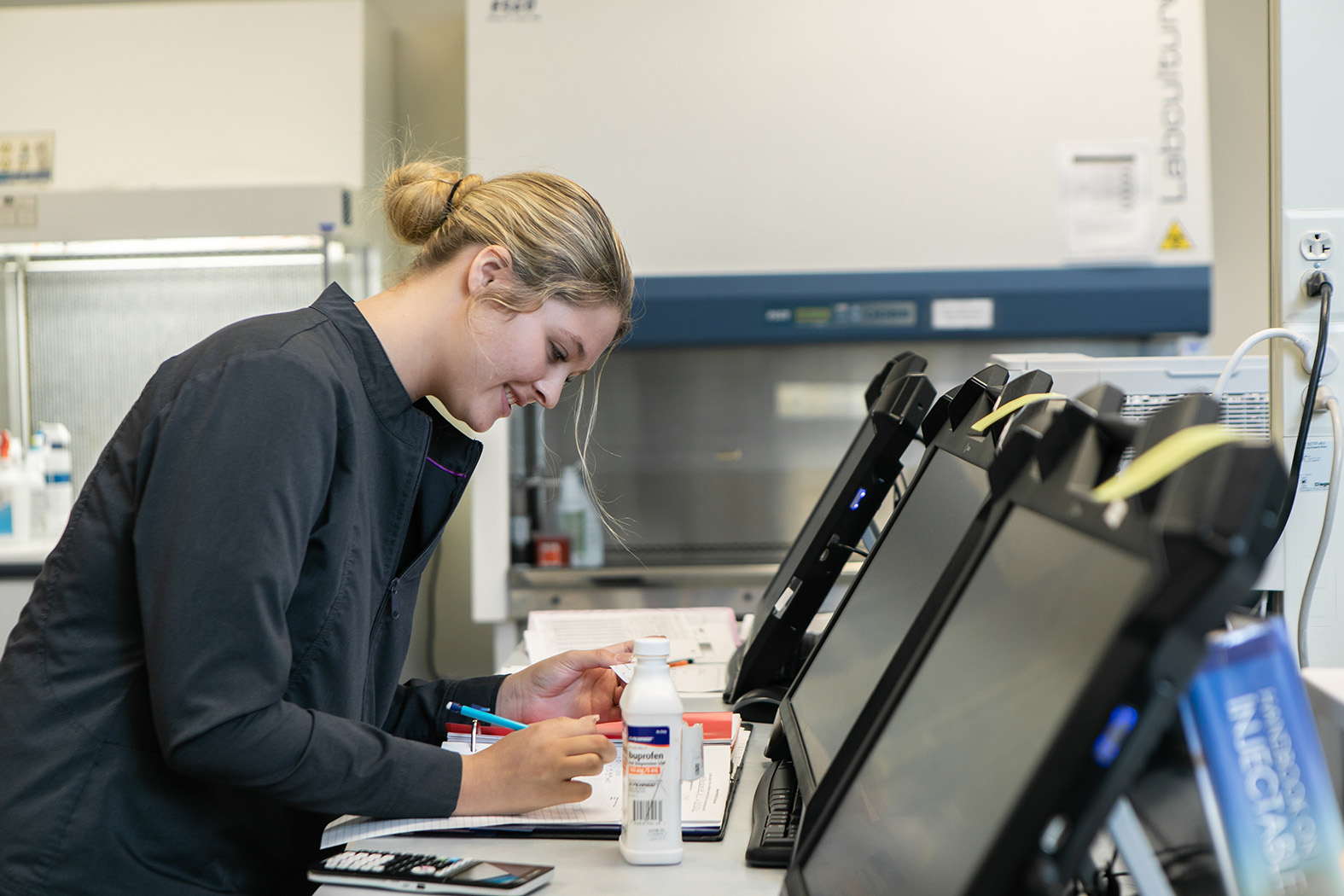
The Pharmacy Technician Certificate Curriculum is a formal academic training program that prepares individuals to become pharmacy technicians. These allied health professionals assist and support licensed pharmacists in preparing and dispensing medications and other health care products to patients. Under the direction of a pharmacist, the pharmacy technician performs pharmacy-related functions, in compliance with specific policies and procedures that provide optimal pharmaceutical care for their patients.
Pharmacy technicians are in high demand in health care and in the pharmaceutical industry. Job opportunities for pharmacy technicians are good, especially for those with previous experience, formal training, or certification, according to the U.S. Department of Labor. Possible career opportunities for pharmacy technicians include a variety of practice environments including hospital, infusion, and long term care, and mail-order, chain and community pharmacy services. Pharmacy technicians work in computerized, clean, organized, well-lighted, and well-ventilated areas. Most of their workday is spent on their feet. They may be required to lift heavy boxes or to use stepladders to retrieve supplies from high shelves.
Pharmacy technicians often have varying work schedules that include nights, weekends, and holidays. In facilities that are open twenty-four hours a day, such as hospital and mail order pharmacies, technicians may be required to work nights. Many technicians work part time.
The South Carolina Pharmacy Practice Act (administered by the S.C. Board of Pharmacy) requires all pharmacy technicians desiring state certification to (1) pass the Pharmacy Technician Certification Exam (PTCE)- a national exam, (2) complete 1000 hours of practice (up to 400 clinical training hours in an educational program are recognized) under the supervision of a licensed pharmacist, and (3) provide proof of completion of a formal academic pharmacy technician training program that is nationally accredited.
The Pharmacy Technician Certificate program is accredited by the American Society of Health System Pharmacists (ASHP), 500 East-West Highway, Suite 900 Bethesda, MD 20814, Phone (866) 279-0681, www.ashp.org and the Accreditation Council for Pharmacy Education (ACPE), 190 S. LaSalle Street, Suite 2850 Chicago, IL 60603-3499, Phone (312) 664-3574, Fax (866) 228-2631, www.acpe-accredit.org.
Program Contact:
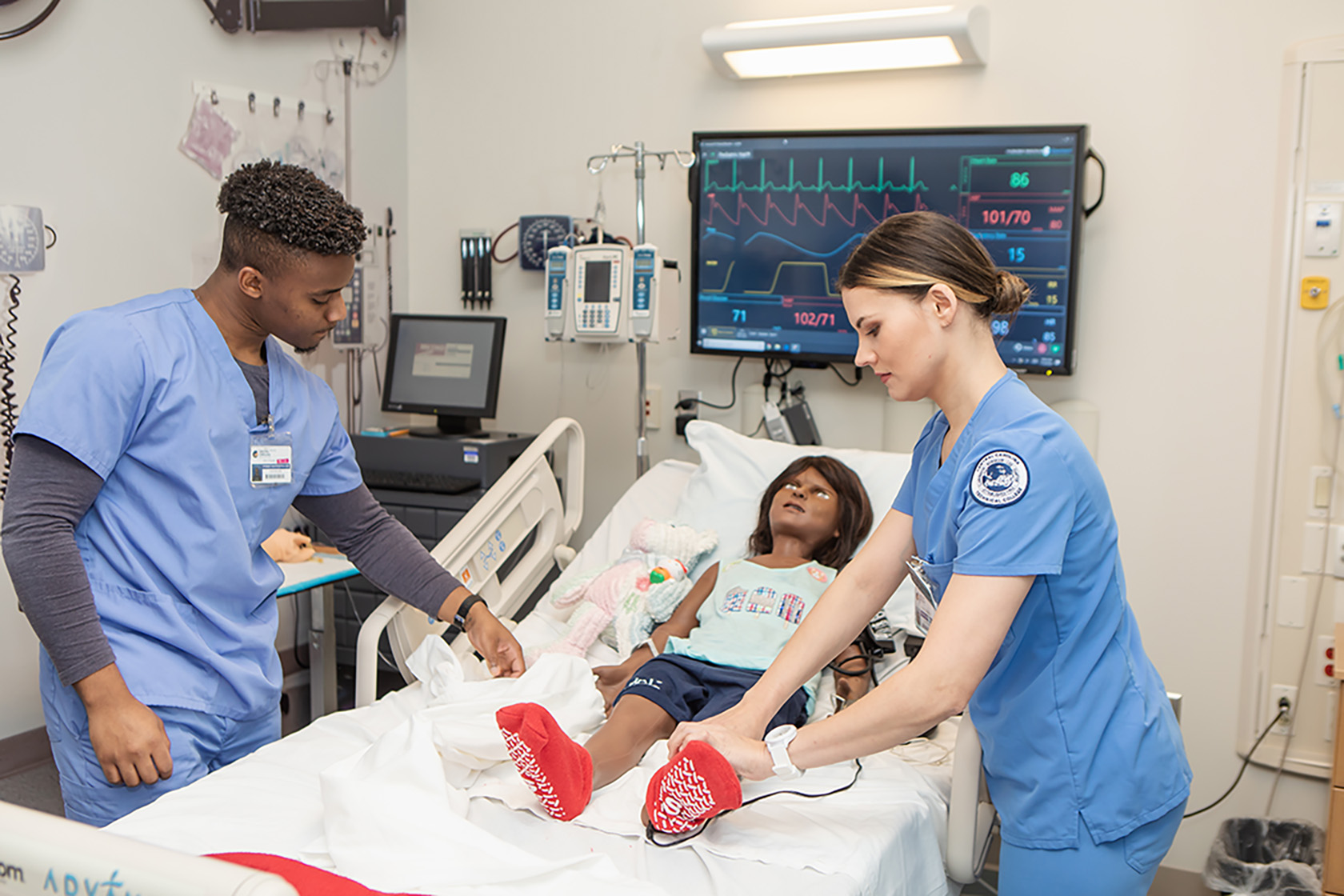
The Practical Nursing program prepares graduates to function as competent practical nurses who are caring and sensitive to diversity and use critical thinking and technology to provide care in structured settings for patients and their families/significant others. Throughout the program, the student has planned clinical experiences to complement classroom learning and to enhance skills in the application of nursing principles and associated technology. The scheduling of clinical experiences varies throughout the practical nursing program.
The Practical Nursing program prepares graduates to apply to take the National Council Licensing Examination for Practical Nurses (NCLEX-PN) and is approved by the South Carolina Department of Labor, Licensing, and Regulation (LLR) Board of Nursing, 110 Centerview Drive, Columbia, SC 29210, (803)896-4300, https://llr.sc.gov/nurse.
Requirements for the program are subject to change without notice in order to meet requirements of the South Carolina LLR Board of Nursing and the South Carolina Technical College System.
Successful completion of the Practical Nursing program does not guarantee licensure to practice as a licensed practical nurse.
Program Contact:
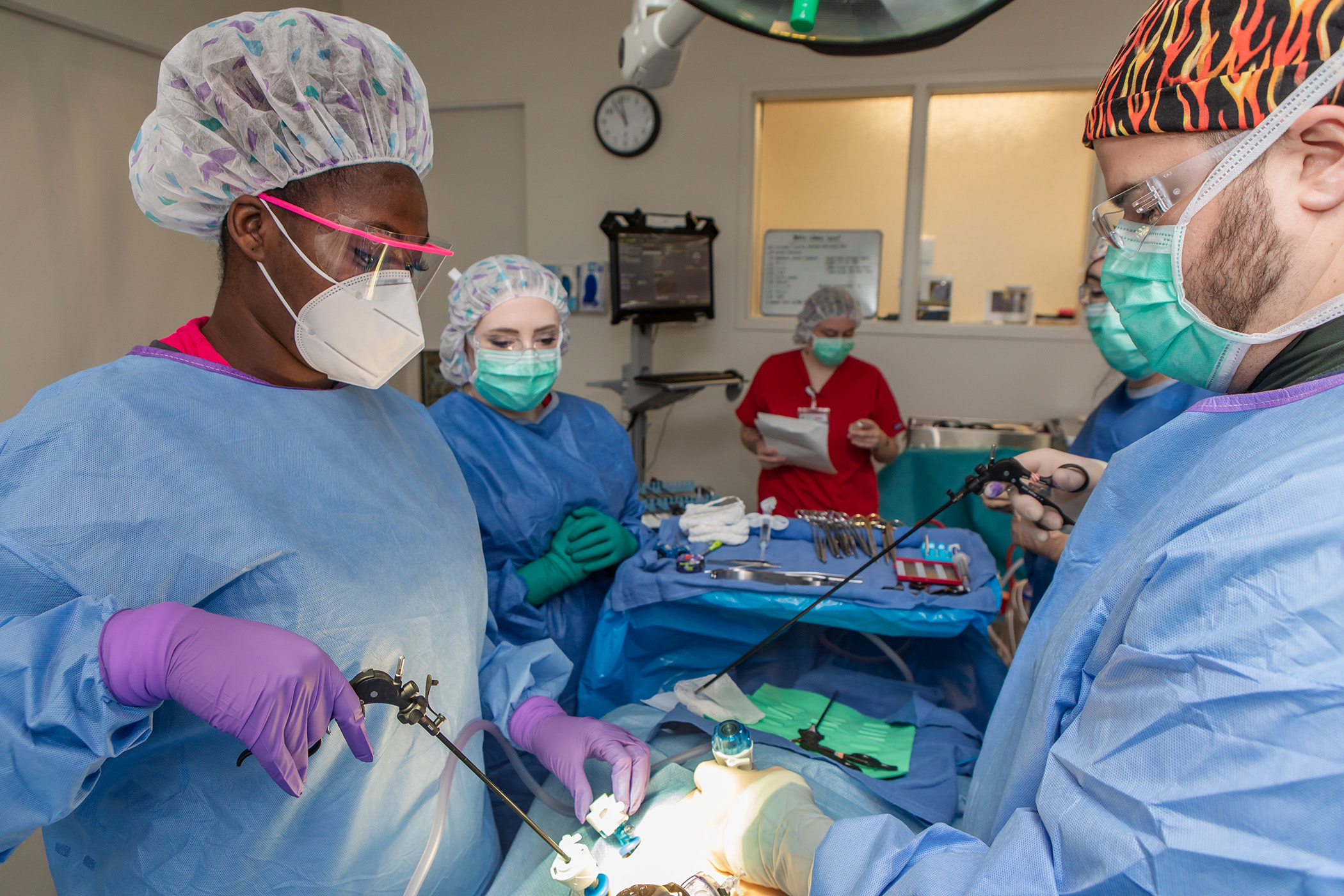
The Surgical Technology Associate Degree in Applied Science program is designed to prepare individuals for work closely with surgeons, anesthesiologists, registered nurses and other surgical personnel in delivering patient care and assuming appropriate responsibilities before, during and after surgery. The primary responsibility of the surgical technologist is to maintain the sterile field while ensuring that all other members of the surgical team adhere to aseptic technique.
The qualified candidate will have excellent eye-hand coordination, effective communication skills, an affinity for detail and the ability to function well in stressful situations. Knowledge of human anatomy, surgical instrumentation, supplies and procedures allows the surgical technologist to function as an integral member of the surgical team. Program graduates will be eligible to take the National Board of Surgical Technology and Surgical Assisting (NBSTSA) certification examination for designation as a Certified Surgical Technologist (CST) and will be qualified for employment in many diverse areas of the health care systems, such as the following: operating rooms, emergency rooms, labor and delivery, GI and cardiac catheterization labs, ambulatory surgery centers, sterile supply, cell saver technologist, private physician’s scrub surgical technologists, instrument sales representatives and veterinary assistants.
The Surgical Technology Program is accredited by the Commission on Accreditation of Allied Health Education Programs (CAAHEP) 9355 – 113th St. N. #7709, Seminole, FL 3375, Phone (727) 210-2350, www.caahep.org, upon the recommendation of the Accreditation Review Council on Education in Surgical Technology and Surgical Assisting (ARC/STSA), 19751 East Main Street, Suite 339 Parker, CO 80138, Phone (303) 694-9262, www.arcstsa.org.
Application for admission to the Surgical Technology program is based on a competitive admission process: therefore, meeting the minimum admission criteria does not guarantee acceptance into the program.
Program Contact:
Requirements for Health Sciences
Health Sciences programs are designed to provide graduates with immediate employment in the health care industry or prepare graduates to transfer to articulating colleges.
Requirements for Health Sciences programs are subject to change without notice in order to comply with institutional, state, and/or national accreditation criteria.
Core Performance Standards to Ensure Attainment of Competencies in Health Sciences Programs:
With reasonable accommodations, the student should be able to demonstrate the following abilities:
- Critical thinking ability sufficient for clinical/laboratory judgment (e.g., identifies cause-effect relationships in clinical/laboratory situations, etc.)
- Interpersonal abilities sufficient to interact with individuals, families, and groups from a variety of social, emotional, cultural, and intellectual backgrounds (e.g., establishes rapport with clients/families and colleagues)
- Communication abilities sufficient for interaction with others in verbal and written form
- Physical abilities sufficient to move from room to room and maneuver in small spaces (e.g., moves around in client’s rooms, work spaces, and treatment areas, administers cardiopulmonary resuscitation procedures; positions themselves in the clinical/practicum/externship and laboratory environment so as to render vital care to clients without obstructing the positioning of necessary equipment or other health care workers, etc.)
- Gross and fine motor abilities sufficient to provide safe and effective client care (e.g., calibrates and uses equipment; positions clients, etc.)
- Auditory ability sufficient to monitor and assess health needs (e.g., hears monitor alarm, emergency signals, auscultatory sounds and a range of sounds necessary to assess client status, cries for help)
- Visual ability sufficient for observation and assessment necessary in client care (e.g., observes client physical condition, etc.)
- Tactile ability sufficient for physical assessment (e.g., performs palpation, functions of physical examination and/or those related to therapeutic interventions, i.e., insertion of a catheter)
- Possess sufficient stamina to participate in activities requiring large muscle skills including being able to move quickly (e.g., lift clients, equipment, and supplies up to 50 pounds)
- Demonstrate emotional stability and psychological health in the interaction with clients, families, colleagues, and college personnel.
*Note: Examples are not all inclusive.
Student Reimbursement for Clinical/Laboratory Experience
Students are not reimbursed for clinical/laboratory experience while completing the clinical/laboratory component of a program.
Admission Requirements for Health Sciences Programs
- Must meet the general requirements of the College for admission (see College admissions requirements) and specific criteria outlined for each program.
- May not apply to more than one Health Sciences program at one time.
- Must be a graduate of an accredited high school or possess a GED. All official transcripts must be submitted to document program admission requirements have been met.
- Must successfully complete all program curriculum courses with a “C” or higher. Students may retake courses, based on space availability, completed with less than a “C”.
- Must submit completed physical examination/immunization form provided by the Health Sciences Division prior to admission to clinical/laboratory courses or by the designated deadline. Physical examination should demonstrate the applicant is free of any physical or emotional health problems to include communicable diseases that would interfere with the ability to safely perform all duties. Influenza and Hepatitis B vaccination are strongly encouraged due to the potential exposure in the clinical/laboratory setting. Students who choose not to be vaccinated will be required to sign a waiver. Decisions should be made in consultation with a physician, nurse practitioner, or physician’s assistant.
- Must have current American Heart Association Basic Life Support (BLS) Health Care Provider certification prior to admission to clinical/laboratory courses or by the designated deadline. Online certification/recertification is not accepted.
- May be require to show proof of health insurance as required for specific programs/courses.
- Must purchase and maintain professional liability insurance with the College (approximately $5 annually).
- Must purchase the school-approved uniform required by the program.
- Must furnish blood pressure equipment, scissors, etc., as required for specific programs/courses.
- Must provide or arrange own transportation to and from clinical sites.
*Note: Enrollment in health sciences programs is limited.
Criminal Background Check and Toxicology Screen
Clinical facilities require students to have a Criminal Background Check and Toxicology Screen prior to participating in clinical rotations. Students will be required to have a Criminal Background Check and Toxicology Screen through facilities specified by the College only. Criminal Background Checks and Toxicology Screens will be reviewed with designated personnel at the clinical facility. All findings must be satisfactory with the clinical facility prior to clinical placement. Students not accepted for clinical rotations will not be able to successfully complete the course or program. Students are responsible for all fees associated with Criminal Background Checks and Toxicology Screens. Random Criminal Background Checks and/or Toxicology Screens may be done at the discretion of the College of Nursing Health Sciences.
Proof of Health Insurance
Clinical facilities may require students to maintain health insurance as a condition of clinical placement.
Graduation Requirements for Health Sciences Programs
Must earn a minimum program GPA of 2.0 to complete a degree, diploma, or certificate.
*Note: For all Health Sciences programs, the program GPA includes a
